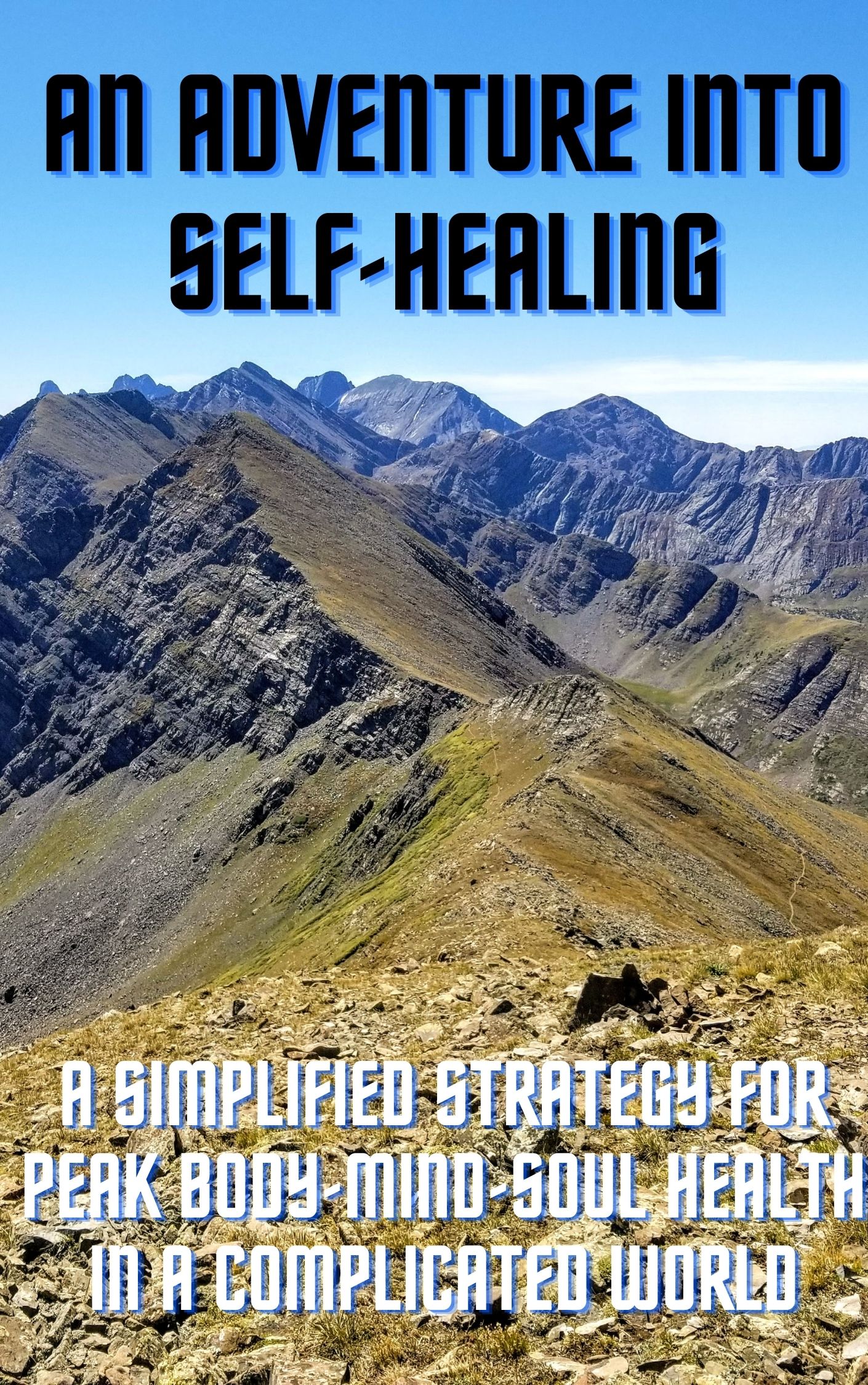Way ~ Through Your Body!
- Home
- Integrative Healthcare
- Integrative Medicine
Integrative Medicine and the Doctor Patient Relationship, Post Procedure
If integrative medicine were a reality, the doctor patient relationship would be one of honesty and trust at all times post procedure.
'It is more important to know what sort of person has a disease than to know what sort of disease a person has.' ~ Hippocrates (460-377 B.C.)
This type of medicine is never needed more than in our current times of fragmented and specialized medical care. Traditional healthcare that is integrated with alternative medicine and natural and complementary medicine is the topic of another of my articles at Integrative Healthcare.
Most important of all in integrative medicine is the integration of doctors with the patient herself if favorable medical outcomes are to prevail. This doctor patient relationship is just one of the integrative medicine subjects that I choose to focus on for this article.
The Body Window's Self-Guided Healing Course is Now Reduced to only 19.95 USD!
Click here to learn more about how this healing course can change your life!
Integration in the doctor patient relationship requires that the patient be aware of her own needs, her own body messages and her confidence in directing her own care.
Never before has our healthcare system required that many physicians and specialists be involved in the care of one patient, one condition. Never before has the doctor patient relationship been so important, involving two-way interactive conversations to come up with the best treatment plans.
The patient herself has to learn to be her own case manager, because few primary doctor patient relationships exist where the family doctor or internist is aware of all the plans of the various specialists involved in the patient's care. Inter-doctor communication is sorely lacking in our un-integrative healthcare system, so YOU, the patient must learn to be your own case manager.
You must be the one to request and keep all records of your tests and procedures and specialist visits. Or you must assign a trusted significant other, family member or friend to help you and be your advocate.
The more complex your treatment plan, the more important it becomes and the more difficult to achieve. Gone is the age where the doctor takes care of it all for you. Each individual doctor is more concerned about his/her own specialty area and getting through your appointment expeditiously than building a trusting doctor patient relationship.
Integrative Medicine ~ The Privilege of Knowledge
Recently I have been discussing with my family the effects of various medical procedures, in the post procedure time of healing.
Integrative medicine practices are sorely lacking when it comes to doctors discussing potential issues and side effects of procedures and treatments. Doctors are very reluctant to discuss this subject. They do not want to put ideas into your head regarding all the possible negative effects of the procedure. (Fortunately, it is a requirement of the law for the doctor to tell you the potential adverse outcomes of surgery.)
The doctor patient relationship may be privileged, but as it were the doctor is frequently more privileged than the patient to the necessary information. This is why I think complementary medicine practices have become so important.
Doctors are not taught the importance of the doctor patient relationship in regards to honesty and trust. Fully integrative medicine would have the doctor tell the patient that while all peoples responses to treatment are unique, that if specific symptoms or issues arise, that he/she will be there to support and treat them as needed. The actual side effect, therefore, wouldn’t have to be named, but the fear would be addressed and eased, long before any fear from reality could set in!
For instance, doctors don’t tell you that after chemo you will experience nausea. This is because the suggestion of a symptom often makes it your reality. This is the mind body connection at work.
Health care professionals know that the mere suggestion of a symptom or side effect often makes it happen. There are many tales of a patient coming into the clinic for a chemotherapy treatment, and just by virtue of walking inside, immediately feel waves of nausea, before even receiving the treatment! Because of this powerful phenomenon, health care practitioners often will not discuss negative outcomes and side effects.
The mind’s power to affect a symptom on the body is a real risk when the information is provided. So instead of giving the emotional support so often necessary with invasive treatments and procedures, the issue is ignored.
Prior to my own father’s death my family struggled with omissions of information regarding the ramifications of chemotherapy in an 87 year old that may have led to more suffering than was necessary. While they believed that hope was a necessary ingredient in the treatment plan, my family couldn’t help but wonder if sufficient information was given in order for my father to make the best decisions.
If integrative medicine was in play, and the doctor patient relationships were one of honesty and trust, could he have had a better end-of-life journey? I will never be able to answer this question, because I was only able to be present in his final moments of life. (For the story see In Loving Memory.)
Even if I were there, the issues are often moral ones and very difficult to decipher. I struggle with these questions constantly.
Another dramatic omission of information that separates us from real integrative medicine where the doctor patient relationship is paramount is often found with pre-surgical patients.
Most physicians don’t really want to tell you what your body actually goes through in a surgical procedure. You sign the surgical permission document that lists common complications of surgery, but you are not told what to really expect. You blindly put your faith in your surgeon and everyone prays for the best!
Post Procedure ~ A Time to Heal
Surgery is a very traumatic experience for the body, one that is totally unfamiliar to you (if you have never had surgery), and is a great insult to your body’s homeostasis. No healthcare professional wants to tell you that surgery is a significant physical stressor where your entire body rhythms will be displaced.
All that healthcare professionals want to emphasize post procedure is the positive. They tell you that in 8-12 weeks, depending on the length and complications of surgery, that you will be back to normal.
Most of you go along with this because you wish to believe that you are stronger than an ox, and in 2 weeks time you will be back to normal. And besides, you have become a pro at ignoring that your body has any impact on your life anyway. You are accustomed to pushing through the body’s aches, pains and symptoms. You prefer to deny that you have a body that needs attention at all!
And then, when the surgery is over is when you tend to feel your mortality more than ever! The longer you are in surgery and the more complicated it is, the greater the potential long-term risks are, such as obtaining a surgical site infection, suffering from stressed tissues from lying in one position for a long period of time, the actual physical stress of the surgery and cutting itself and the after-effects of anesthesia.
If integrative medicine principles were part of your pre-op teaching, you would understand that surgical procedures and other invasive procedures are an emotional and spiritual journey as well as a physical one.
Preparing oneself for the body-mind-soul stressors of surgery and other invasive procedures could be eased with a caring, trustworthy doctor patient relationship in which the principles of integrative medicine are practiced.
Integrative Medicine Principles Post Procedure
While it is not my intent to inform you of all the things that could happen to you post-procedure, because I do understand the mind body connection very well indeed, I would like to put out there what I believe a health care practitioner who practices integrative medicine should tell you prior to invasive procedures and treatments.
Your doctor or other healthcare professional should invite you to take the time post procedure to gently and lovingly nurture yourself. He/she should advise you to gently listen to your body. They should encourage you to report all that you feel that is out of the ordinary. And often most things will be out of the ordinary!
Instead of integrative medicine, it feels like your healthcare professionals just want everything to be OK and don’t want to hear about your negative symptoms or your concerns. They may be like broken records, saying over and over again, that if you give it a little more time all will be better.
Post procedure is the time for reflection and renewal. It is a time to look at your life and re-evaluate it. It is a time to reflect on why you needed the surgery or treatment in the first place. Most importantly it is a time to heal!
Just like any injury that takes time off your feet to heal, invasive treatments and procedures require time to heal. There is no greater injury to your body than the injury of a surgical procedure!
If you had a laparoscopic procedure, your healing process may or may not be faster than with a traditional surgical incision. It all depends if you had general anesthesia and how long you were under. It also depends how much internal manipulation of the tissues was required to complete the procedure.
And finally your healing depends on your physical, emotional, mental and spiritual condition prior to the actual procedure. The principles of integrative medicine would tell you this during the time before and after your procedure.
If you are full of anxiety prior to your surgery, you may have a more difficult time post procedure. The physical stress due to the insult on your body is sufficient to set you back, without the emotional component.
Don’t forget that very powerful drugs are thrown at you during surgery and other procedures and place all your systems on a stand still. It is often more difficult than you realize to get your systems like normal bowel function back again. You are given drugs to slow down the digestive processes so you won’t choke on your saliva during surgery while you are unconscious.
You may wish to start on a fiber laxative like Psyllium husk powder (the main ingredient in products like Metamucil) and a stool softener, like Ducusate Sodium before, during and after your surgery to keep steady bowel function. Having to strain on a stool can be quite painful and cause pressure on an incision.
Drink plenty of fluids to help clear the drugs and follow instructions given to you for your diet. If you can have a diet as tolerated, go slowly at first, with soft, easy to digest foods like applesauce, jello, plain bread and so forth until you see how you feel.
Slowly add high fiber foods and meat as your intuition guides you. Lay off the alcohol until your energy levels approximate your normal. You don’t need more sedation to slow you down at this time.
Drugs are given to you to relax your muscles so you do not move during the length of the surgery. The after effects of this are noticeable. Just try to lie in one position involuntarily for 4 hours, without moving sometime. Just see how stiff and sore you feel.
After my surgery on my neck, I thought I would never be able to move my head again! My neck was so sore that I had to see a chiropractor to put me back in proper alignment again. And I was only 37 and in excellent health prior to surgery.
I can tell you the ramifications of surgery on 80 and 90 year olds! I have seen the physical effects time and time again. They often are not ever the same again! This is not always true, but often it is.
Don’t ever fall into the trap of believing that surgery of any type is not a physical trauma from which you can be completely healed, but which will require time and nurturing.
Fatigue is the most common side effect of anesthesia, so take it slow. While recuperating, if you notice that you feel out of kilter, slow down. Sit on the sofa, or lie down and read a self-healing book. Kindly be aware of your body and all that you are experiencing. Take a lot of naps, many times a day.
Watch all those movies you never got around to seeing. Journal about what you are experiencing for reference at your next follow-up visit. For healing, rest and recovery are paramount! Don’t forget that post procedure is a time to heal! Take the time. It is a perfect opportunity for you to do so with a perfect excuse.
When you do feel physically ready for activity, start out slowly. Don’t try to walk a mile or clean the whole house. Walk out for the mail, lightly dust one room and see how you feel before proceeding to the next level. Listen to your body. Just because Janey Doe down the street bounced back from surgery in two weeks doesn’t set your unique levels of tolerance.
When to call the Doctor Post Procedure
Regardless if you experience pain, nausea, or some other symptom, call your doctor if the symptom(s) you experience is uncomfortable to you. Use the 1-10 scale for severity estimations. This is what HCP’s are familiar with, zero being absent (no symptom), one being barely noticeable, five moderately noticeable and is starting to affect your activities of daily living and 10 being the worst possible experience of the symptom. Please be honest with the doctor so they know how to proceed.
If integrative medicine is practiced at your doctor's office, your input will be warmly received.
Gently insist that you receive a personal phone call from the doctor him/herself if your symptom is a five or above. If you believe your symptom to be an eight or above go to the emergency room. If in doubt, get it checked out ~ with a phone call to your doctor at the very least!
If you are placed on a new prescription, listen to your body carefully for any of its effects and/or side effects. Report what you believe to be adverse effects to the doctor immediately. Integrative medicine practices will encourage you to do so.
If you have a fresh postoperative incision, go to "Incision Care" to learn more about how to watch for problems with your incision and how to minimize your surgical scar.
Trust Your Body's Wisdom
In all things, listen to your body’s wisdom when you are healing after chemotherapy, surgery, or other dramatic assaults to your body’s systems and its homeostasis. And may you find the best integrative medicine practices in your doctor patient relationships, even if you have to be the catalyst.
May you find health and healing of your body-mind-soul always!
Related Articles You May Enjoy:
- My Definition of Holistic Health
- How to Prepare for a 15-minute Doctor Appointment
- When Pain is a Medical Emergency
- Incision Care ~ Tips for Great Wound Healing without a Prominent Surgical Scar
- Adrenal Exhaustion
Can't find what you're looking for? Search this website:
Support This Website and Its Mission
Thank you so much for considering a donation to help support this website. I appreciate your thank-you for access to so much free information. If you feel you have been blessed by this website, thank-you for your donation! (Please note that you will be directed to PilgrimageTraveler.com's Paypal page when you click the donate button. This is another website of mine, a subsidiary and I have consolidated two accounts!)
© Copyright 2009-, by Elle Bieling, BodyWindow.com
All Rights Reserved
We also hereby confirm, as stated in our Privacy Policy, that we do not sell personal information of any kind.
Information on this website is not intended for medical advice. See your health care provider for any health concerns. By using this website and/or practicing any yoga postures, foam rolling exercises or other physical movements contained herein, you are agreeing that you are in good health, cleared by your healthcare professional to participate in physical activities and you release The Body Window from any liability involved in the practice.







